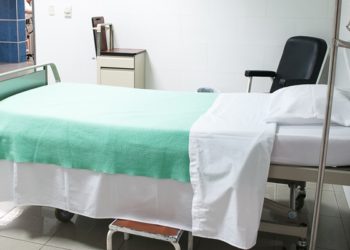Quick Take: Investigating causal relations between sleep traits and risk of breast cancer in women
Previous studies have provided evidence for an association between circadian disruption and breast cancer risk. However, studies examining sleep traits such as chronotypes, insomnia symptoms or degree of sleep disruption with breast cancer risk have been limited or inconclusive. Genetic variants associated with chronotype, sleep duration and insomnia symptoms have been recently identified in large genome-wide association studies. The objective of this prospective cohort study was to assess whether genetic variants associated with chronotype, sleep duration and insomnia symptoms to examine whether these sleep traits have a causal effect on breast cancer risk. Female data from the United Kingdom Biobank (n=156,848) was used to perform a one-sample Mendelian randomization analysis, and estimates were compared with conventional observational multivariable regression results. A two-sample Mendelian randomization analysis was also conducted using data from the Breast Cancer Association Consortium (BCAC) (122,977 cases, 105,974 controls). Self-reported chronotype, average sleep duration, and insomnia symptom responses were gathered at baseline. Single nucleotide polymorphisms (SNP) associated with the three sleep traits as derived and validated in independent cohorts were also used in analysis. Participants were followed through record linkage via the National Health Service central registers for first diagnosis of breast cancer or breast cancer listed as the underlying cause of death to identify prevalent and incident breast cancer diagnoses. Based on multivariable regression analyses, researchers found that morning preference was inversely associated with breast cancer (HR 0.95, 95% CI 0.93 to 0.98 per category increase), whereas no significant association was found with sleep duration or insomnia symptoms. The former association was supported by two-step Mendelian randomization analysis (inverse variance weighted OR 0.88, 95% CI 0.82 to 0.93 per category increase). Two-step analysis also showed harmful effects of increased sleep duration (OR 1.19, 95% CI 1.02 to 1.39 per category increase). This study therefore shows that there may be a protective effect of morning preference with respect to breast cancer risk. Findings from this study also suggest that increased sleep duration may be associated with increased breast cancer risk.
Click to read the study in BMJ
Image: PD
©2019 2 Minute Medicine, Inc. All rights reserved. No works may be reproduced without expressed written consent from 2 Minute Medicine, Inc. Inquire about licensing here. No article should be construed as medical advice and is not intended as such by the authors or by 2 Minute Medicine, Inc.







